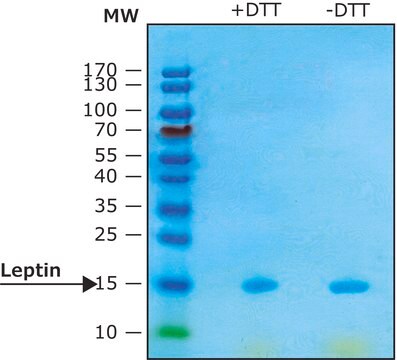I3661
Insulin-FITC labeled human
recombinant, expressed in yeast, lyophilized powder
Synonym(s):
FITC Insulin, Labeled Human Insulin
Sign Into View Organizational & Contract Pricing
All Photos(1)
About This Item
Recommended Products
recombinant
expressed in yeast
Quality Level
form
lyophilized powder
solid
composition
Insulin, ≥75% biuret
extent of labeling
≥1 mol FITC per mol insulin
shipped in
dry ice
dry ice
storage temp.
−20°C
−20°C
General description
Insulin is a polypeptide hormone mainly secreted from pancreas when glucose level changes in the plasma. It is an anabolic hormone and enhances the generation of storage substances, for instance glycogen, fat and protein. It also induces glucose uptake by peripheral tissues, thereby controlling glucose levels in the plasma. Its main sites of action are liver, adipose tissue and muscle.
Application
Insulin-FITC labeled human has been used in primary endothelial cells from human adipose tissue microvasculature (HAMEC) to study insulin transcytosis.
Physical form
Lyophilized powder containing sodium phosphate buffer salts
Storage Class Code
11 - Combustible Solids
WGK
nwg
Flash Point(F)
Not applicable
Flash Point(C)
Not applicable
Certificates of Analysis (COA)
Search for Certificates of Analysis (COA) by entering the products Lot/Batch Number. Lot and Batch Numbers can be found on a product’s label following the words ‘Lot’ or ‘Batch’.
Already Own This Product?
Find documentation for the products that you have recently purchased in the Document Library.
Customers Also Viewed
Cristina C Clement et al.
Scientific reports, 8(1), 11253-11253 (2018-07-28)
Transport of tissue-derived lymphatic fluid and clearance by draining lymph nodes are pivotal for maintenance of fluid homeostasis in the body and for immune-surveillance of the self- and non-self-proteomes. Yet a quantitative analysis of nodal filtration of the tissue-derived proteome
Espinal J
Understanding Insulin Action: Principles and Molecular Mechanisms (1989)
Aaron L Glieberman et al.
Lab on a chip, 19(18), 2993-3010 (2019-08-30)
Pancreatic β cell function is compromised in diabetes and is typically assessed by measuring insulin secretion during glucose stimulation. Traditionally, measurement of glucose-stimulated insulin secretion involves manual liquid handling, heterogeneous stimulus delivery, and enzyme-linked immunosorbent assays that require large numbers
Mahmoud S Alghamri et al.
ACS nano, 16(6), 8729-8750 (2022-05-27)
Glioblastoma (GBM) is an aggressive primary brain cancer, with a 5 year survival of ∼5%. Challenges that hamper GBM therapeutic efficacy include (i) tumor heterogeneity, (ii) treatment resistance, (iii) immunosuppressive tumor microenvironment (TME), and (iv) the blood-brain barrier (BBB). The
Hanwoong Woo et al.
Molecular brain, 11(1), 37-37 (2018-07-05)
Chronic stress is a psychologically significant factor that impairs learning and memory in the hippocampus. Insulin signaling is important for the development and cognitive function of the hippocampus. However, the relation between chronic stress and insulin signaling at the molecular
Our team of scientists has experience in all areas of research including Life Science, Material Science, Chemical Synthesis, Chromatography, Analytical and many others.
Contact Technical Service









